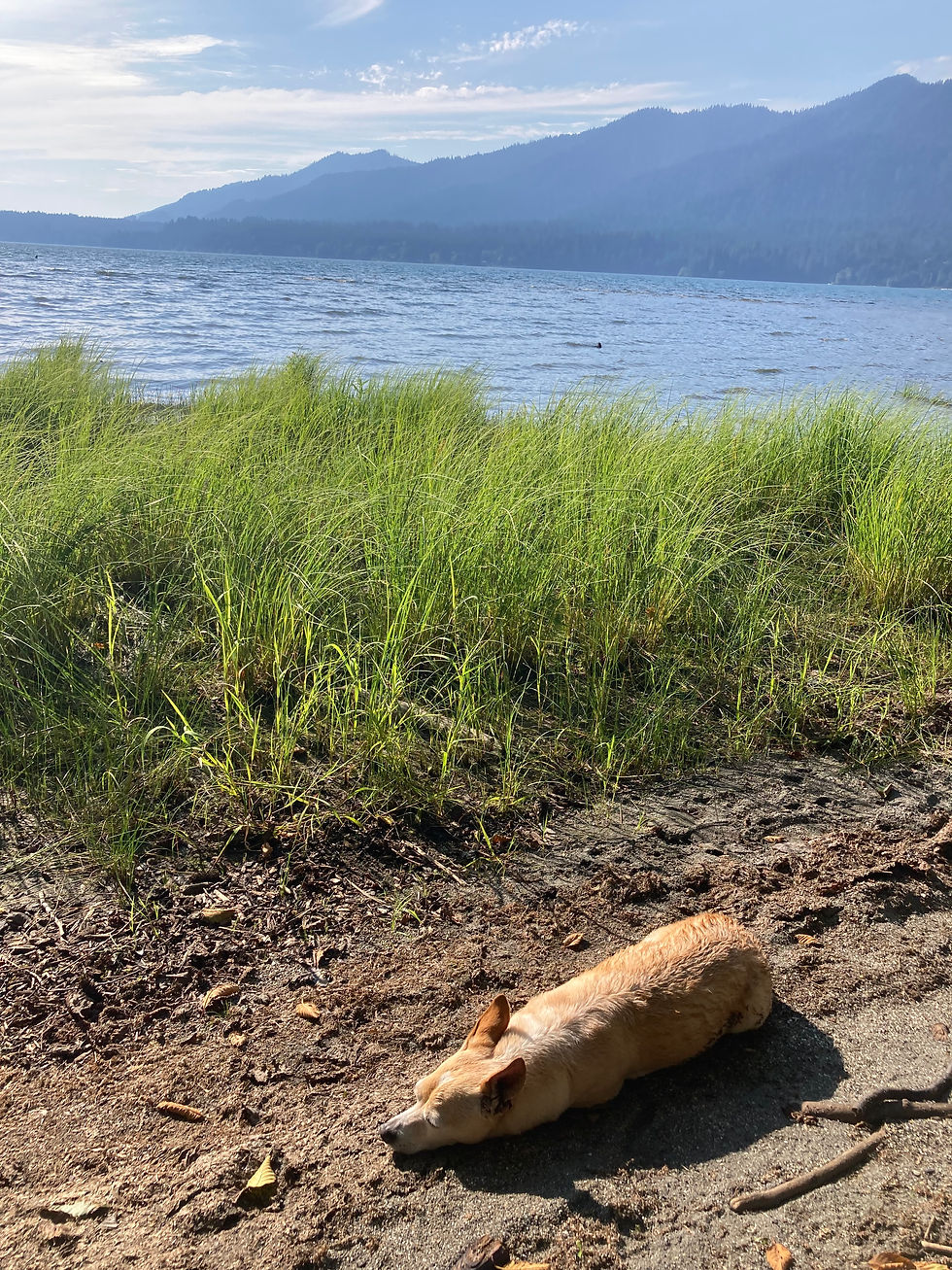"In almost every garden, the land is made better, and so is the gardener." Robert Rodale
- Monica Eastway

- Jan 17, 2022
- 2 min read
Updated: Feb 2, 2022

When I was a live-in caregiver for my great-grandmother, I was always amazed by her tenacity in tending her gardens.
Tending her gardens was her life's joy. Then came the 'fall' followed by dementia. Needing 24-hour care, I could no longer take care of her at home. What became her new 'home' was horrific for her and me: no more gardening and no more dog. Tess had a beloved dog, and her new 'home' did not allow any pets. Looking back, if Tess were at least able to have her dog and if the 'home' had all age and ability gardens, I know her transition would have been much more pleasant (for me as well!), and her quality of life would not have suffered so.
I often wish I knew then what I know now, and I have experienced extreme guilt through the years that I was unable to ensure Tess could age in place and die in the comfort of her beloved home, or at least a home with her dog and plenty of green space.
This guilt has fueled my passion for innovating new models of living and care. While working on my master's thesis, I discovered the Dementia Green Care nursing home model.
The green care farm model is common practice in the Netherlands and Norway. As you can imagine, over three decades of research has shown contact with nature and animals, time spent outdoors, physical activity, meaningful engagement, and healthy eating contribute to the health and well-being of people living with dementia and their caregivers. Memory care and nursing home practices in the United States involve lower levels of physical activity, less time spent outdoors, few social interactions, and a lack of meaningful engagement.
In the green care/farm care model, individuals living with dementia are recognized and seen as people who can provide a meaningful contribution. In addition, studies have shown care farms promote respite and lessen feelings of guilt for family caregivers.
There has never been a more urgent time for us to get into action and build back not only better but wiser and with eco-focus. The ongoing pandemic and extreme weather events have shed light on how our current systems are failing not only the older adults we care for but also all of us.
I learned living with Tess that I may need a walker one day, and I may have dementia one day.
Where will I want to live as my care needs increase?
My answer: ECO Generation Park.
I often wonder how different Tess's last years and my years as a caregiver would have been if there had been an ECO Generation Park option. Heck, I am ready to move in now!
The ECO Generation Park Pilot Community is on course to open by 2024.
You can view the Vision Here: ECO Generation Park: The Vision
With Love, Light, Laughter and Gratitude,
Monica







